Washington University in St. Louis McKelvey School of Engineering


Washington University in St. Louis McKelvey School of Engineering

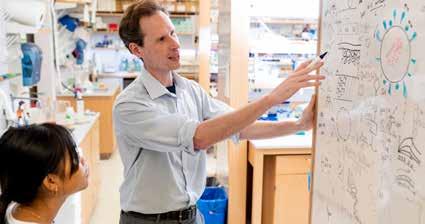
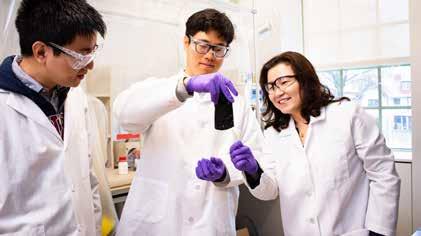
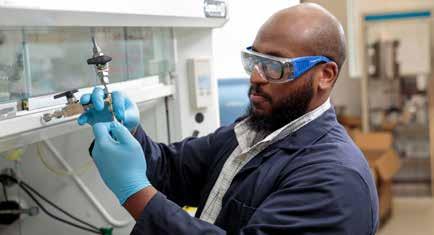
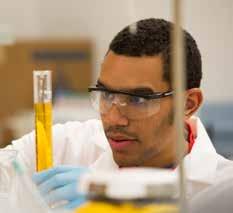

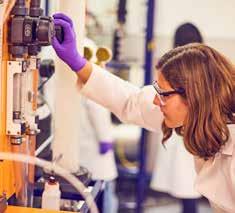
BS in Chemical Engineering BS in Environmental Engineering
PhD in Energy, Environmental & Chemical Engineering
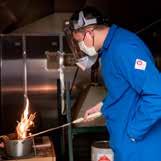
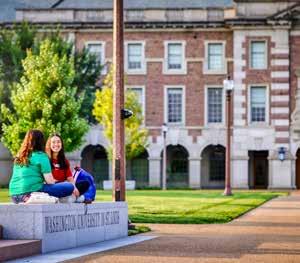
MEng in Energy, Environmental & Chemical Engineering
MS in Energy, Environmental & Chemical Engineering
Joint Master’s of Science in Aerosol Science and Engineering
MEng/MBA or MS/MBA (dual degree)
of
of phd students
The key objective of the joint master’s degree is to conduct research in a project related to aerosol science and engineering that is jointly supervised by a faculty member at IIT Bombay and at Washington University in St. Louis.
Program includes 30 credit hours of advanced-level aerosols engineering and air quality courses and research. Students may also apply for admission into an accelerated PhD program after completing the joint master’s degree.
Brauer Hall is home to the Department of Energy, Environmental & Chemical Engineering. Brauer Hall connects seamlessly with Whitaker Hall on all three levels of its east facade, fostering a sense of unity and continuity in the engineering complex. A LEED Gold certified building, Brauer Hall makes use of a roof-mounted wind turbine and solar panels to generate a portion of the building’s energy. A solar water heater provides hot water to the building, and a highly reflective roof minimizes heat gain.
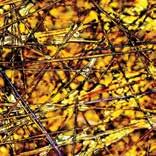
Aerosol science and engineering encompasses the basic principles that describe the formation, growth, evolution and transport of a system of particles suspended in a gaseous medium, and the measurement, characterization and modeling of their properties. Advances in this cross-disciplinary area of research are pivotal to improve our understanding and estimation of climate change, enhancing environmental quality, assessing health impacts and enabling advanced material synthesis. aerosols.wustl.edu
The Center for Water Innovation (CWI) supports both fundamental and applied research to develop advanced technologies and strategies for improving the efficiency of water and wastewater treatment and recovering valuable resources from wastewater. The research activities aim to address water-related social and economic challenges and create business opportunities for the water economic ecosystem. watercenter.wustl.edu
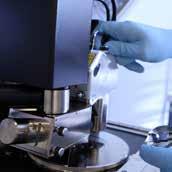
The Nano Research and Environmental Laboratory (NREF) at Washington University in St. Louis is an open, shared research and educational environment that brings researchers across disciplines together, particularly in the emerging area of nanomaterials with applications in the energy, environment and biomedical fields. The facility is located in Brauer Hall and Whitaker Hall on the Danforth Campus. nano.wustl.edu
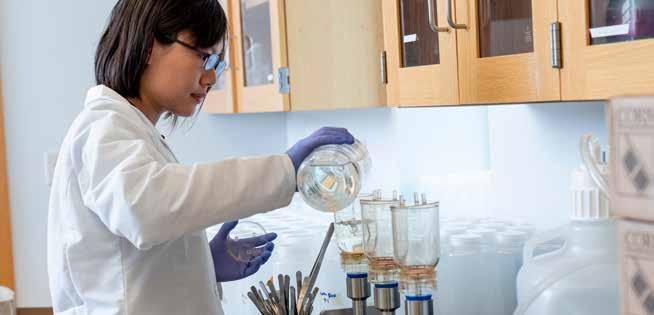
Joshua Yuan Professor and chair PhD, University of Tennessee MS, University of Arizona BS, Fudan University

Joshua Yuan joined the McKelvey School of Engineering faculty in 2022 as professor and chair of the Department of Energy, Environmental & Chemical Engineering from Texas A&M University, where he was professor and chair for synthetic biology and renewable products. To date, he has been awarded more than $22 million in funding as a principal investigator or as co-investigator from the Department of Energy, the National Institutes of Health, the National Science Foundation and others.
Assistant professor, PhD, MS, chemical and environmental engineering, Yale University ScB, chemical engineering, Brown University

Jenna Ditto will join the faculty Jan. 1, 2023. Her research focused on developing new tools to study the chemical makeup of particulate matter in the atmosphere using high-resolution mass spectrometry techniques.
Xinhua Liang Professor, PhD, chemical engineering, University of Colorado, Boulder BS, MS, chemical engineering, Tianjin University, China

Xinhua Liang joined McKelvey Engineering in August from Missouri University of Science & Technology, where he is the Linda and Bipin Doshi Associate Professor of chemical and biochemical engineering and has been a member of the faculty since 2012.

Assistant professor, PhD, University of Tennessee MSE, BSE, Mercer University

Kristen Wyckoff joined WashU’s faculty Jan. 1, 2022. They have experience teaching graduate and undergraduate lecture and lab-based courses in environmental engineering, water resources engineering and engineering communication.
Assistant professor PhD, chemical engineering, Georgia Institute of Technology BEng, chemical engineering, Zhejiang University
Lu Xu will join McKelvey Engineering in August 2023 from University of Colorado, Boulder, where he is a research scientist in the Chemical Science Laboratory for National Oceanic and Atmospheric Administration (NOAA).
Researchers from Washington University in St. Louis developed a method using satellite measurements that allowed them to determine levels of nitrogen dioxide — NO2 — on a scale never before accessible — even in areas where there are no monitoring capabilities on the ground. NO2 is a key contributor to the smog associated with bad traffic or areas of intense industry.
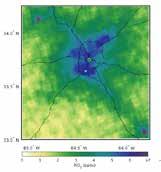
Developed in the lab of Randall Martin, the Raymond R. Tucker Distinguished Professor in the Department of Energy, Environmental & Chemical Engineering, the method allows researchers to infer levels of NO2 in regions as small as a neighborhood.
When they used it to compare levels of NO2 before and during COVID-19-related lockdowns across the globe, they found that, although there was a significant decrease in NO2 worldwide in areas under lockdown, there were also striking discrepancies on smaller scales.
The results were published Jan. 19 in the journal Nature.
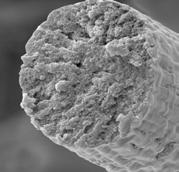
Fuzhong Zhang, professor of energy, environmental and chemical engineering, has developed a synthetic biology platform to produce muscle fibers that are strong, tough and can absorb energy in ways very similar to the real thing. His research team went on to explore genetic changes that may lead to improved material performance.
The National Science Foundation (NSF) has awarded Washington University in St. Louis’ Zhang lab a $458,490 grant to continue this line of research. His team can now take a closer look at the muscle protein titin to understand what genetic changes to titin are associated with particular material traits.
“We’d like to use our synthetic biology platform as a tool to understand how synthetic muscle fiber works and make better materials,” Zhang said. His team also will use their tools to examine muscle fibers from longextinct animals.
Department of Energy, EnvironmentalResearch from the lab of Peng Bai, assistant professor of energy, envi ronmental & chemical engineering, recently revealed the formula for building a perfectly stable sodium electrode.
The team has now discovered the formula for a perfectly stable and safe electrode.
The research was published in January 2022 in the journal Advanced Energy Materials.
Stability in an electrode is key to a well-performing battery. Instability is caused by irregular distribution of metal ions as they move from the cathode to the anode. The more uniformly the ions move, the smoother the outgrowth of metal deposits. This results in a longerlasting battery and, importantly, a battery that is less likely to short and create a hazardous situation.
“Does absolute stability guarantee absolute safety?” Bai asked. It does not, especially during the fast charging. Bai and Bingyuan Ma, a postgraduate research associate, determined why.
The short answer: A critical component that has been left out in laboratory experiments is more important than previously thought. A perfectly safe battery that can undergo fast recharging requires cooperation from the separator.
To learn more about how the different chemical agents interact in herbicide formulations, a team of researchers is developing a frame work to understand how the pieces come together, said Kimberly M. Parker, assistant professor. Her col laborators in this work are Stephen M. Sharkey, a fourth-year doctoral student in Parker’s lab, and Brent J. Williams, associate professor . Their outlook was published in Environ mental Science & Technology Nov. 23, 2021.
In 2020, about 90% of all corn, cotton and soybeans planted in the United States were genetically modified to tolerate one or more herbicides, such as glyphosate, dicamba or 2,4-dichlorophenoxy acetic acid (2,4-D). As a result, the associated herbicides for the tolerant crops have typically seen increased use, Sharkey found.
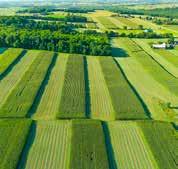
“To address these challenges posed by herbicide drift, continued progress is needed to improve practices that prevent drift, including the design of chemical formations and to understand the impact of herbicides after they enter the atmosphere,” Parker said. “By defining factors that contribute to herbicide drift and characterizing the atmospheric processes that influence its impact, we may develop new solutions to prevent it.”

Daniel E. Giammar, the Walter E. Browne Professor of Environmental Engineering, will lead the team on the new research with $1.25 million in total funding. The project is supported by the U.S. Department of Energy and through matching funds. The prestigious award is part of $17.7 million the DOE awarded to 16 projects nationwide to bolster development of energy-efficient water-treatment technologies through the National Alliance for Water Innovation, led by Lawrence Berkeley National Laboratory. Emerging technologies in selenium removal have focused on using electrocoagulation, a method that electrochemically introduces a metal ion, such as ferrous iron, to water to ultimately remove contaminants from wastewater in a few different ways: the release of ferrous iron from the anode introduces a reactive species that can remove dissolved selenium while reactions on the cathode may also be involved in selenium removal. Over three years, Giammar and his collaborators plan to advance the use of iron electrocoagulation to remove selenium from water by tailoring the generation of solid particles to have targeted adsorption and reduction properties.
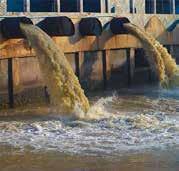
» Association of Graduate Students (AGES)
» Association of Black Biomedical Graduate Students (ABBGS)
» The Association for Women in Science (AWIS)
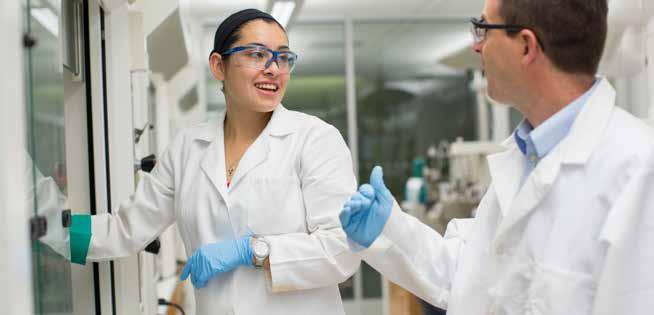
» American Institute of Chemical Engineers
» Engineering Test Kitchen
» Engineers Without Borders
» Environmental Engineering Students Association
» Future Educators
» Graduate Association of Latin American Students (GALAS)
» Graduate Student Senate
» National Society of Black Engineers (NSBE)
» oSTEM
» ProSPER
» Sling Health
» Society of Hispanic Professional Engineers (SHPE)
» Society of Women Engineers (SWE)
Summer 2023: National University of Singapore

Each year, students are selected for this program that is guided by faculty from EECE.
» Students engage in project discussions, presentations and report writing
» Pre-visit orientation meetings and lectures
» Field trips to corporations, regulatory agencies and laboratories
» Social and cultural programs
» Analysis of experience, projects, discussions and presentations in subsequent semester
acre landscape and laboratory facilities provided for multi-scale, long-term environmental research
Research at Tyson spans many environmental topics and includes studies on biodiversity, disease, climate change, art, and architecture. Research projects vary from single-season student projects to faculty-led experiments and longterm monitoring. The integration of our educational programs with faculty-led research at Tyson allows scientists to tackle big questions, and student apprentices to gain the expertise they need to become independent investigators with a drive for scientific discovery.

Vijay Ramani, the Roma B. and Raymond H. Wittcoff Distinguished University Professor and professor of energy, environmental & chemical engineering has been named a Fellow of the Electrochemical Society.

Ramani, also the university’s vice provost for graduate education and interna tional affairs, was one of 15 new members of the 2022 Class of ECS Fellows. The designation recognizes advanced individual technological contributions to the fields of electrochemistry and solid-state science and technology and for service to the society. The society elects no more than 15 fellows each year out of its 8,000 members, and only about 400 fellows have been named since the inception of the Fellows program more than 30 years ago.
Ramani’s research focuses on electro chemical engineering, materials science and renewable energy technologies, with an em phasis on electrochemical energy conver sion and storage (low temperature fuel cells, electrolyzers and redox-flow batteries).
The Water Environment Federation (WEF) Has named Zhen (Jason) He, a professor of energy, environmental and chemical engineering, a fellow of the organization. He is the editor in chief of Water Environmental Research, the WEF’s journal. He also serves as editor in chief of the Journal of Hazardous Materials.

In his research, he studies environmental biotechnology, bioenergy production, sustainable desalination technology and membrane bioreactors, among topics and technologies related to taking advantage of the resources in wastewater.
McKelvey Engineering faculty awarded $10.7 million in federal clean energy grants

The world’s changing climate, reflected in more and more destructive wildfires, drought, floods and severe weather events, has led the United States to set a goal of a net-zero emissions economy by 2050. Four professors in the Department of Energy, Environmental & Chemical Engineering in the McKelvey School of Engineering at Washington University in St. Louis are working toward that goal with a combined $10.7 million in newly awarded grants from the U.S. Department of Energy (DOE).
Young-Shin Jun, Zhen (Jason) He, Vijay Ramani, Fuzhong Zhang to lead new projects. The research projects will focus on creating new clean energy technologies that address not just energy production, but also emissions, critical element recovery, the conversion of carbon and waste into new energy sources, and durable carbon dioxide storage.


Richard Axelbaum, a professor of energy, environmental and chemical engineering and the Stifel & Quinette Jens Professor of Environmental Engineering Science, researches combustion in its many forms and in different environments — including in microgravity on the International Space Station. He uses his understanding of fossil fuel combustion and its resulting pollutants to address concerns over carbon dioxide emissions, notably by developing novel approaches to carbon capture and storage. Axelbaum holds 10 patents and founded the startup company AP Material Inc., which commercialized a flame-synthesis technology to manufacture highpurity nanopowders.
Distinguished Professor, was ranked No. 12 in the United States and No. 23 worldwide among the top 1,000 environmental scientists by Research.com.
The ranking, the organization’s first for this field, is based on h-index data. The Research. com ranking includes scientists with an h-index
of at least 30 for scientific papers published in environmental sciences. More than 9,000 profiles of environmental scientists were examined to determine the ranking.
Martin, a world-renowned expert in atmospheric composition, also ranks among the world’s most highly cited researchers by the Institute for Scientific Information.
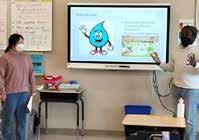
Students in the Department of Energy, Environmental & Chemical Engineering collaborated with the School District of University City and St. Louis Aquarium Founda tion to provide fifth-grade students with a hands-on water education program.
The collaboration was led by Zhen (Jason) He, professor of energy, environmental & chemical engineering and faculty adviser of the Environmental Engineering Students Association (EnvESA).
“If we want to attract more students, especially those from underrepresented groups, to STEM fields, we must start the process earlier,” He said. “This type of outreach can stimulate those students’ interest in STEM and encourage them to further explore the subjects.”
EnvESA members taught more than 200 fifth-grade students at four district elementary schools. As part of the program’s curriculum, students learned about the water cycle and wastewater treatment processes and participated in a activity in which they treated wastewater using different filtering materials.
“Our lessons were geared toward exposing students to water and wastewater treatment,” said Matthew Ferby, a doctoral student in the Department of Energy, Environmental & Chemical Engineering and president of EnvESA. “We also highlighted teamwork and science communication.”
Beeler accepted into DOE research program for doctoral students

Payton Beeler, a doctoral student in the McKelvey School of Engineering at Washington University in St. Louis, has been accepted into the U.S. Department of Energy’s Office of Science Graduate Student Research (SCGSR) program, a prestigious research opportunity for doctoral students.
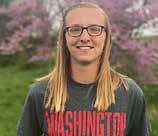
Beeler, who works in the lab of Rajan Chakrabarty, associate professor of energy, environmental & chemical engineering, will conduct some of her doctoral thesis research at the Pacific Northwest National Laboratory in Richland, Washington, for six months.
Beeler will work to determine whether there are significant changes to soot particle size and optical properties before and after they undergo cloud-processing. Then, she will develop a single-particle model that can recreate any observed changes to soot particles during cloud processing.
Graduate student Garrett Roell has been accepted into the Office of Science Graduate Student Research (SCGSR) program, a prestigious research opportunity funded by the U.S. Department of Energy’s Office of Science.

The program will allow Roell, a PhD student in the lab of Yinjie Tang, professor of energy, environmental & chemical engineering, to conduct a portion of his doctoral thesis research at the Lawrence Berkeley National Laboratory in Califor nia. There, Roell will pursue research focused on understanding metabolic regulation for efficient biofuel production from non-food crops.
Maria Bruce, a doctoral student in the Department of Energy, Environmental & Chemical Engineering , has received a National Defense Science and Engineering Graduate Fellowship, sponsored by the U.S. Department of Defense.
The highly competitive fellowship program was established in 1989 to increase the number of U.S. citizens receiving doctoral degrees in science and engineering disciplines of military importance. Since its inception, it has awarded nearly 4,400 fellowships from more than 65,000 applications to U.S. citizens and nationals. Fellows in the program study a variety of STEM disciplines of importance to the military.
Bruce is studying titanium redox kinetics and performance modeling of the Ti-Ce redox flow battery in the lab of Vijay Ramani, the Roma B. & Raymond H. Wittcoff Distinguished University Professor. She earned a bachelor’s degree in chemical engineering from the University of Tennessee, Knoxville in 2020, where she also worked as an undergraduate research assistant. In addition, she completed internships at the Argonne National Laboratory and Jack Daniel Distillery.
Department of Energy, EnvironmentalJoshua Yuan
Chair & Professor joshua.yuan@wustl.edu
Research interests:
Employs mechanism-based engineering design to address the challenges in energy, the environment and health
Richard Axelbaum Professor axelbaum@wustl.edu
Research interests: Investigates ways to eliminate the formation of pollutants, such as soot drug delivery (IGUDD)
Peng Bai
Assistant Professor pbai@wustl.edu
Research interests: Inventing new analytical tools, both experimental and mathematical, to investigate the fundamental science in advanced electrochemical energy systems molecular biology, biophysics
Rajan Chakrabarty
Associate Professor chakrabarty@wustl.edu

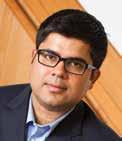
Research interests: Leads the Complex Aerosol Systems Research Laboratory
Jenna Ditto
Assistant Professor Starts January 2023
Research interests: Investigates the chemistry and impacts of urban indoor air pollution
Associate Professor mfoston@wustl.edu
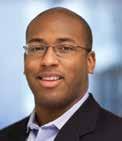
Research interests: Finds innovative ways to utilize biomass and plastic waste resources for production of value-added products
Research interests: Researches sustainable solutions to produce safe drinking water
Zhen (Jason) He Professor zhenhe@wustl.edu
Research interests: Using advanced technologies to recover valuable resources from wastewater
Young-Shin Jun Professor ysjun@wustl.edu
Research interests: Solves important energy and environmental challenges using nanoscale interfacial reactions and nucleation
Xinhua Liang Professor xinhua@wustl.edu
Research interests: Designs novel nanostructured materials using gas-phase synthesis to address energy and environmental challenges
Fangqiong Ling
Assistant Professor fangqiong@wustl.edu
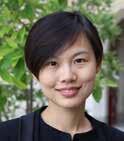
Research interests: Studies microbial ecosystems to improve water supply safety and public health
Research interests: Leading expert on advancing the understanding of atmospheric composition
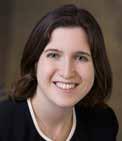
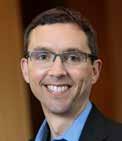
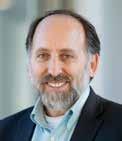
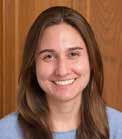
Tae Seok Moon
Associate Professor tsmoon@wustl.edu
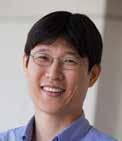
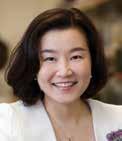
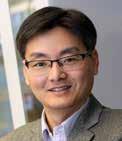

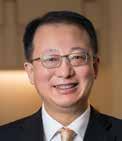
Research interests: Engineers microbes to solve global problems by applying synthetic biology strategies
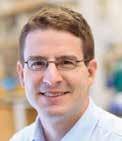
Kimberly Parker Assistant Professor kmparker@wustl.edu
Research interests: Studies the fate of chemical and biological pollutants in soil, air and water
Professor and Vice Provost for Graduate Education ramani@wustl.edu
Research interests: Advances electrochemical energy conversion & storage

Yinjie Tang Professor yinjie.tang@wustl.edu
Research interests:
Studies metabolic modeling and analysis; fermentation engineering; and algal bioprocesses
Elijah Thimsen
Associate Professor elijah.thimsen@wustl.edu
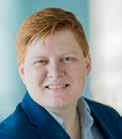
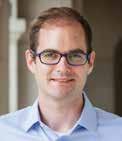
Research interests: Researches thermodynamic aspects of chemical and material transformations
Jay Turner Professor & Vice Dean for Education jrturner@wustl.edu
Research interests: Assesses air pollution sources and human exposures to drive interventions
Jian Wang Professor jian@wustl.edu
Research interests: Researches the impact of aerosols on climate and air quality
Brent Williams Associate Professor brentw@wustl.edu
Research interests: Researches chemical properties of atmospheric and indoor gases & particles
Lu Xu Assistant Professor Starts August 2023
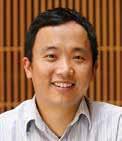
Research interests: Focuses on air quality and climate change
Fuzhong Zhang Associate Professor fzhang29@wustl.edu
Research interests: Uses synthetic biology to produce better biofuels, chemicals and highperformance materials from engineered microbes
» AAAS Fellow: Pratim Biswas (visiting)
» American Chemical Society (ACS) Fellow: Young-Shin Jun
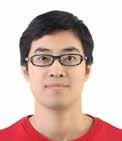
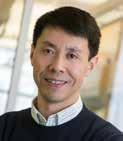
» Association of Environmental Engineering & Science Professors (AEESP) Fellow: Pratim Biswas (visiting)
» Electrochemical Society Fellow: Vijay Ramani
» International Water Association (IWA) Fellow: Zhen (Jason) He
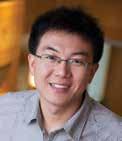
» The Royal Society of Chemistry (RSC) Fellow: Young-Shin Jun and Joshua Yuan
» National Academy of Inventors (NAI) Senior Member: Rich Axelbaum
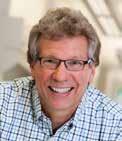
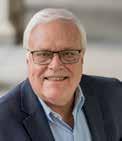
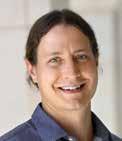
» National Academy of Engineering (NAE) Member: Pratim Biswas (visiting)
» The Water Environment Federation (WEF) Fellow: Zhen (Jason) He
Janie Brennan
Senior Lecturer & Director of Undergraduate Studies jbrennan@wustl.edu
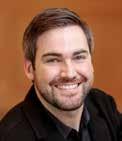
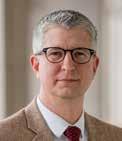
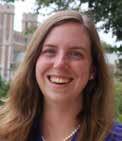
Research interests: Utilizes evidence-based teaching methods in engineering education
Ray Ehrhard
Senior Lecturer rehrhard@wustl.edu
Research interests: Teaches practical evaluation and analysis involving rising concerns in the environmen tal field focusing on water, wastewater and energy solutions
Benjamin Kumfer Research Assistant Professor kumferb@wustl.edu
Research interests: Advancing innovative power generation and combustion technologies
Trent Silbaugh Lecturer and Director of Master’s Studies tsilbaugh@wustl.edu
Research interests: Teaches undergraduate lecture and laboratory courses in chemical engineering
Kristen Wyckoff Lecturer kristenw@wustl.edu
Research interests: Integrates active learning, outreach and diversity and inclusion into engineering education
Department of Energy, Environmental & Chemical Engineering
chemical engineering majors
After graduating, Peter earned a doctorate in environmental engineering from the University of Iowa. She now works in the Biochemical and Exposure Science Group for the National Institute of Standards and Technology (NIST), the nation’s top measurement group.

Her work focuses specifically on developing methods to better analyze and understand the sources of per- and polyfluoroalkyl substances (PFAS) in the environment. These chemicals, which can be found in man-made materials such as Teflon and fire-fighting foam, are also known as “forever chemicals” since they don’t break down and can build up in the human body.
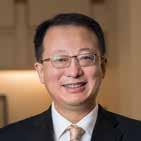
Department Chair and Lucy & Stanley Lopata Professor joshua.yuan@wustl.edu
the workforce 25% continued education 9% internship, co-op, volunteer, other
top companies: 3M
Anheuser-Busch AT&T Boeing
Burns & McDonnell Engineering Capital One City Year Dow Chemical Company Eastman Ecolab Inc.
ExxonMobil Corp.
General Motors Henkel
Johnson & Johnson Maryville Consulting Group Mostardi Platt Pfizer
Procter & Gamble
The Kraft Heinz Co.
The MITRE Corp.
Thermo-Fisher Scientific
top graduate schools: Columbia University
Johns Hopkins University Massachusetts Institute of Technology (MIT)
Northwestern University Princeton University University of CaliforniaBerkeley University of Texas - Austin Washington University in St. Louis
Department of Energy, Environmental & Chemical Engineering eece.wustl.edu • @WashU_EECE